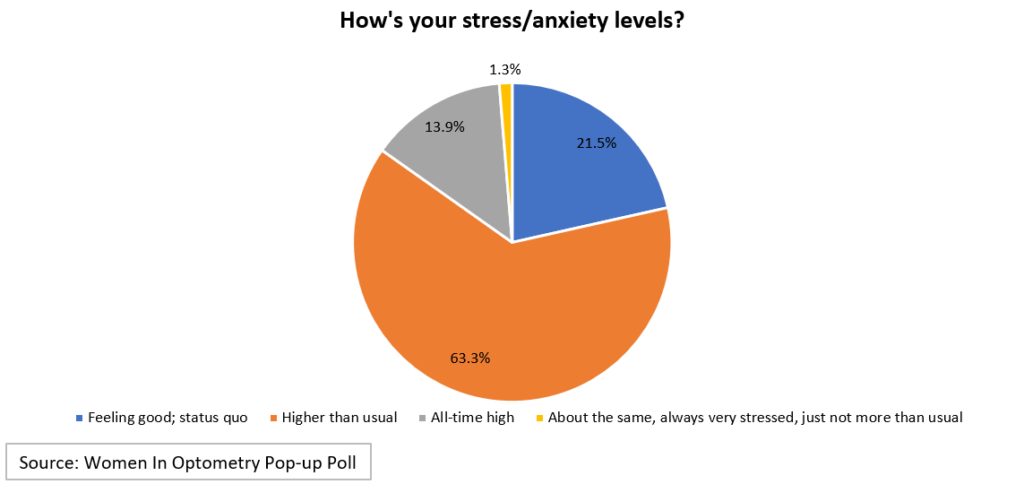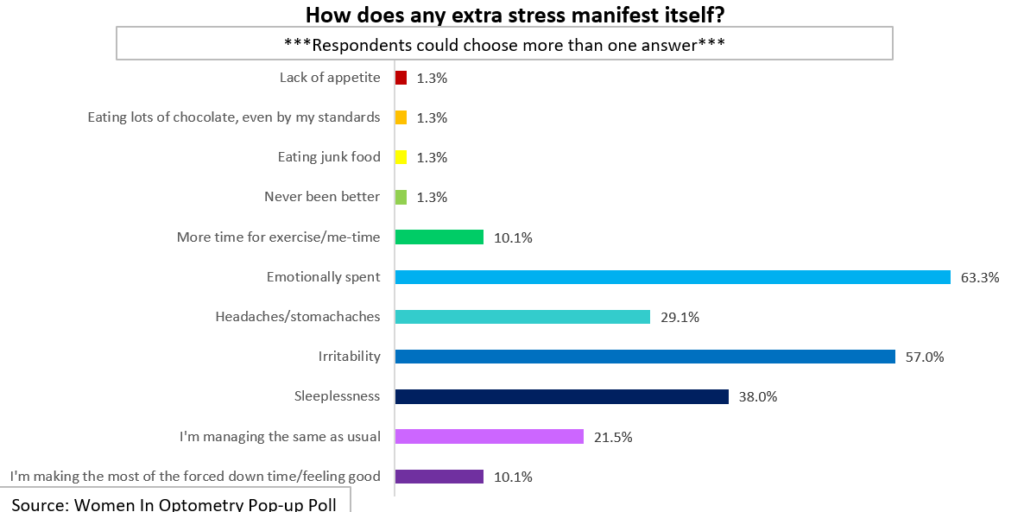As COVID-19 continues to be prevalent, Women In Optometry (WO) checked in on its readers’ emotional state.


A majority of the respondents (63.3 percent) shared that their stress/anxiety levels are higher than usual, while approximately one-sixth of respondents expressed that their anxiety levels are at an all-time high. That’s an astounding three-out-of-four respondents who say that the pandemic environment is taking a toll on their well-being.
Work is often the root of the cause. One respondent shared that they are “actually thinking about stepping away from the profession.”
COMBATING WORLDWIDE ECONOMIC CHANGES
Rising prices seem to be a pressing issue for some practice owners.
Another respondent said, “Our office is still doing well, although struggles with insurance are still chipping away at our bottom line, which makes paying staff difficult as our cost of goods continues to rise every few months. When everything in the world seems to be going up in price, the fact that we are receiving the same as or less than we were 15 years ago from insurance companies is just disgusting. Especially since their rates have skyrocketed in the last 10 years.”
The added stress factors are not only affecting respondents’ mental state, but also their physical conditions.
More than half of the respondents shared that extra stress is manifested as fatigue or irritability. Similarly, the stress is shown through physical symptoms, such as sleeplessness or headaches and stomachaches.


MAKING TIME FOR SELF-CARE
WO asked respondents to share their favorite or recent coping methods to alleviate the tolls of stress. Physical movement, such as walking, hiking, sewing and experimenting with new exercise classes, was a popular response.
Taking the time to practice breathing and meditation gained honorable mentions as coping strategies. One respondent shared that while she is meditating, she “tries to focus on the small wins and not let the defeats weigh them down too much or too long.”
Developing a firm boundary between work and life is also important. Since the pandemic, one respondent said she took weekends off to recharge and relax, while another respondent shared, that she “took a weekend away as a family, which helped A LOT, refusing to check messages or do anything work related during that time.”
The majority of respondents, 68 percent, were female ODs, and another 20 percent said they were female, not ODs. The remainder are male ODs, with about 4 percent of the total of respondents saying that they preferred not to list their gender.



